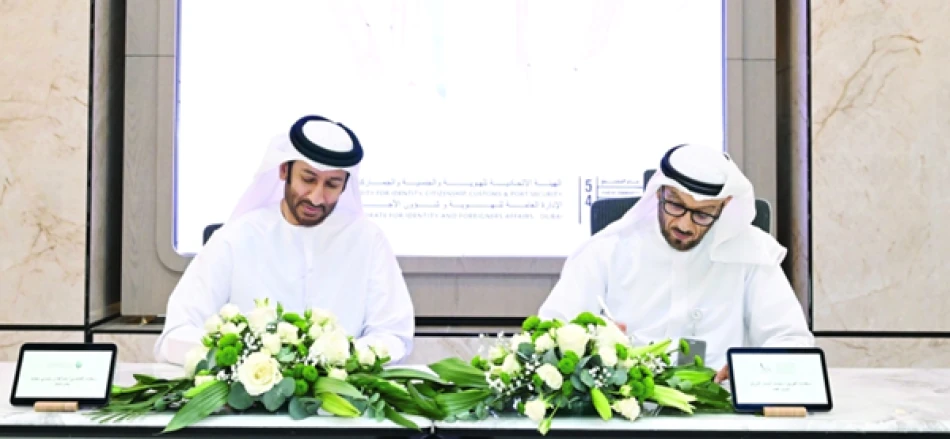
Dubai Rentals Authority and Rental Disputes Center Forge Strategic Partnership for Seamless Tenant-Landlord Resolutions
Dubai Immigration Authority Partners with Rental Disputes Center to Streamline Resident Services
Dubai's General Directorate of Residency and Foreigners Affairs has signed a strategic partnership with the Rental Disputes Center, marking a significant step toward creating an integrated digital ecosystem for the emirate's 3.5 million residents. The collaboration aims to eliminate bureaucratic silos and deliver seamless services that could set a new benchmark for government efficiency in the Middle East.
Breaking Down Government Silos
The memorandum of understanding, signed by Major General Mohammed Ahmed Al Marri and Judge Abdul Qader Musa, focuses on three core areas: data sharing, joint project development, and service integration. This partnership represents Dubai's broader "human-first" governance philosophy, which prioritizes resident satisfaction and quality of life over traditional departmental boundaries.
For Dubai's massive expatriate population—comprising over 85% of residents—this integration could eliminate the frustrating ping-pong effect between government departments when dealing with housing and residency issues.
Strategic Implications for Dubai's Competitiveness
Attracting Global Talent
This move comes as Dubai intensifies competition with Singapore, Hong Kong, and other global cities for high-skilled professionals and investors. Streamlined government services have become a critical differentiator in attracting digital nomads, entrepreneurs, and multinational corporations seeking regional headquarters.
The integration particularly benefits property investors and residents navigating Dubai's complex rental market, where disputes often intersect with visa and residency requirements. By connecting these systems, Dubai addresses a key pain point that has historically deterred some international residents.
Digital Government Leadership
The partnership aligns with the UAE's broader digital transformation strategy, which aims to make the country a global leader in government innovation by 2025. Dubai has already pioneered several digital-first initiatives, including blockchain-based document verification and AI-powered visa processing.
This data-sharing agreement could serve as a template for other emirate-level integrations, potentially creating the world's most connected government ecosystem.
Market and Investment Perspective
For Dubai's real estate sector—valued at over $100 billion—the partnership offers tangible benefits. Property developers and management companies will likely see reduced administrative friction when dealing with tenant visa issues, while international investors gain confidence in Dubai's institutional efficiency.
The move also supports Dubai's positioning as a crypto and fintech hub, where regulatory clarity and government efficiency are crucial for attracting blockchain companies and digital asset firms seeking stable operational environments.
Regional Context and Competitive Dynamics
While Saudi Arabia invests heavily in NEOM and other mega-projects, Dubai continues focusing on operational excellence and resident experience. This partnership demonstrates how incremental improvements in government efficiency can be just as powerful as headline-grabbing developments.
The collaboration also reflects the UAE's federal structure, where individual emirates compete and collaborate simultaneously. Abu Dhabi has pursued similar integration initiatives, creating healthy internal competition that benefits the entire country's governance standards.
The success of this partnership will likely be measured not in press releases, but in reduced processing times, fewer document requirements, and higher resident satisfaction scores—metrics that directly impact Dubai's ability to attract and retain global talent in an increasingly competitive landscape.
Most Viewed News

 Layla Al Mansoori
Layla Al Mansoori






